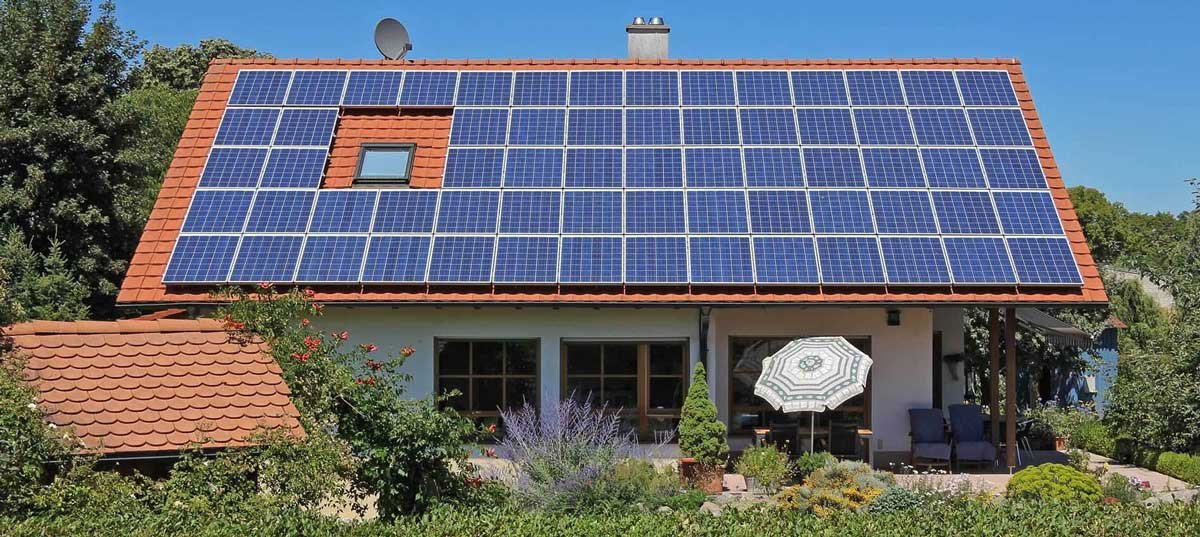Americans are turning to solar energy to power their homes more than ever before. That’s in part due to the push to use more sustainable energy, but also because it’s becoming more affordable.
In fact, since 2014, the price of solar panels has dropped by almost 50%.
This is great news if you’re trying to figure out if solar panels fit into your budget.
Keep reading to learn about the different factors that influence the total cost of a solar panel system and to see an overview of the average prices.
As you’ll soon find out, the future of solar is very bright!
Factors That Impact the Cost of Solar Panels
The truth is that not all solar projects are created equally. The total price you pay is completely dependent on a number of factors.
So, if your friend in the next town over gets solar panels, the out-of-pocket costs for them could vary greatly compared to what it might cost to add panels to your home.

Size of Your House
Generally speaking, the bigger your home, the more expensive it is to install solar panels. That’s because you have a bigger space that requires power.
If one of your goals in installing solar panels is to cut back on how much you rely on power from your local utility, you’ll want to produce as much of your own power as possible, which requires more panels.
Since part of the total cost of solar panels is based on the number of panels you need, this will increase the price.
However, if you’re not looking to completely eliminate your reliance on your electric company, and you’re instead looking to supplement your home with solar power, then you won’t need as many panels.
This can help you save, even if you do have a large home.
Ease of Installation
When you meet with a solar company to talk about your project, one of the first things they’ll ask you about is your roof.
The harder it is to install your system on your roof, the more you’ll have to pay for the project. If you have a steep, sloping roof, it takes more effort to safely install the panels, which is factored into the cost.
Or, if your roof is too dangerous, you may have to repair or replace it before a solar installer will agree to work on your home.
Keep all of this in mind when setting the budget for your project.
Types of Panels
If you thought all solar panels were the same, think again! There are a few different types of panels available, some more expensive than others.
The two primary types of panels you’ll choose from as a homeowner are monocrystalline and polycrystalline cells.
Monocrystalline panels tend to be more efficient, with a nicer aesthetic. Of course, that often means a higher price tag as well.
Polycrystalline panels are a little less efficient, and often have a blue tint to them, compared to the sleek black look of monocrystalline panels. However, polycrystalline panels are a more budget-friendly option.
Tax Credits
The type of panels you install is almost as important as when you install them. That’s because there are federal tax credits available that can significantly impact the overall cost of your solar project.
The way the credits are set up, you’ll get less money back on your project with every year that passes.
- In 2020, you can recoup 26% of the total cost of the project
- In 2021, you can get back 22% of the total project costs
- In 2022, you’ll get back 0% of the cost
Once the calendar turns to 2022, the only federal tax credit available is 10% for commercial projects.
So, if you’ve been trying to decide when you should make the switch to solar, the answer is sooner rather than later.
Solar Installer
Just as with any service provider, the cost varies by the installer you hire. Before deciding which company to use for your project, do some price comparisons by getting quotes from a few local solar companies.
Then, research more about how those companies operate by reading customer reviews online. Just be sure to read both positive and negative reviews, so you can get an unbiased idea of what it’s like to work with each installer you’re considering.
And remember, don’t make your decision solely based on price. Sometimes, it’s worth it to pay a little extra compared to the quality of service you’ll get in return.
How Much Do Solar Panels Cost on Average?
Now that you know more about what factors influence the cost of a solar project, let’s take a look at the average price range you can expect.
Taking all the factors we discussed above into account, it should come as no surprise that the average solar panel costs range quite a bit. On the low end, your project might only cost between $10,000 and $12,000.
However, on the high end, you might be looking at something between $22,000 and $26,000.
Remember the factors we talked about when planning out your budget so you can try to anticipate the most realistic estimate for your home. And, if you can, try to schedule your project before the tax credits expire, to help further lessen the costs.
Soak Up the Sun and the Savings
Now that you know more about how much solar panels cost and how the price is determined, you can decide if taking advantage of solar power makes sense for your home.
While it is a significant expense upfront, tax credits can help offset the cost initially, and then you’ll be on your way to enjoying energy savings for years to come.
Looking for more helpful content like this? Don’t forget to read through our other articles before you go.












